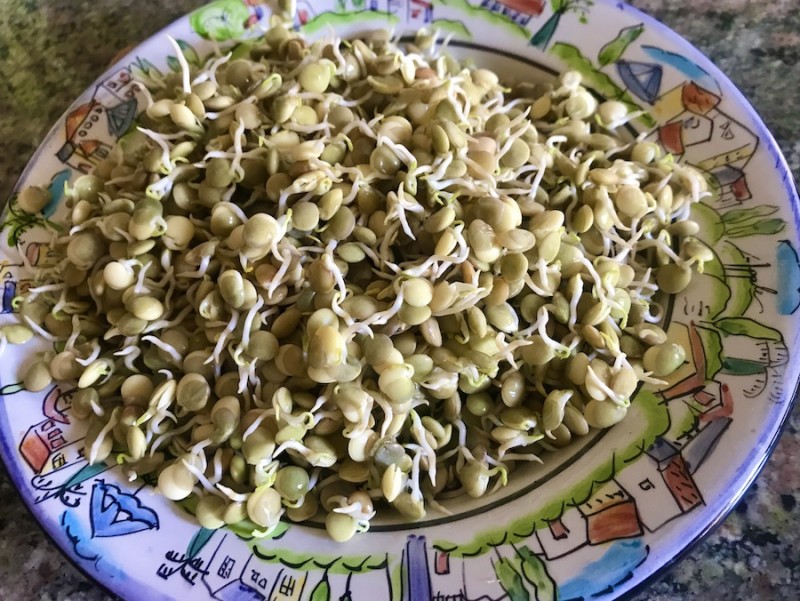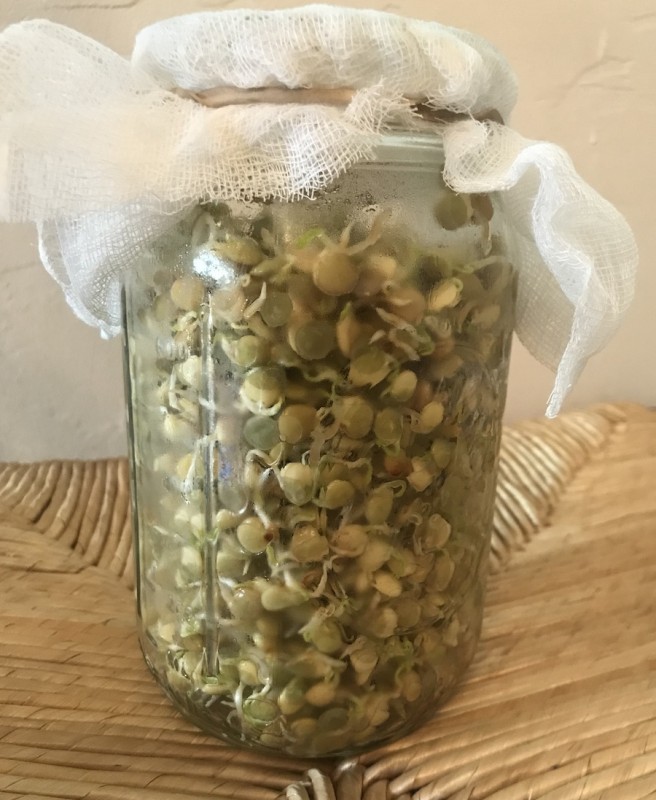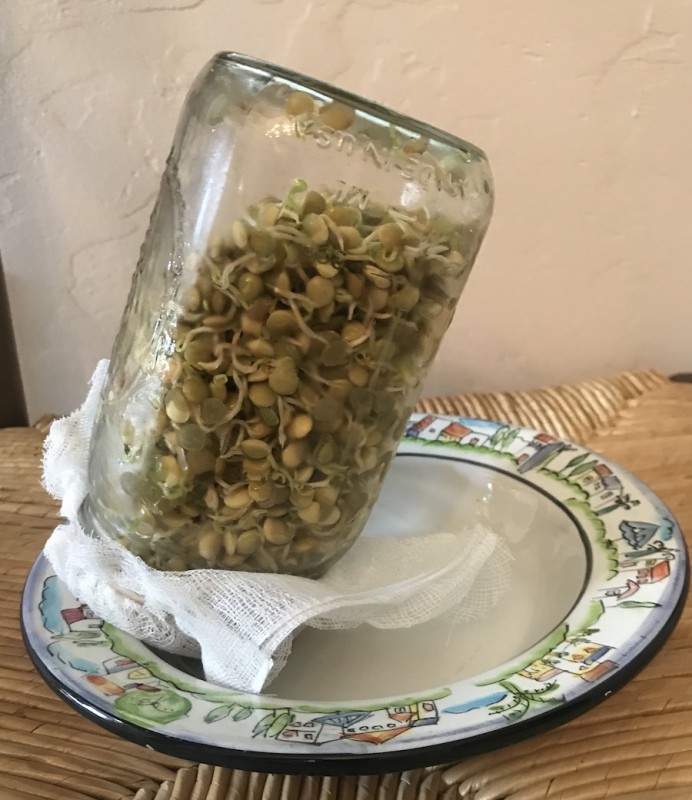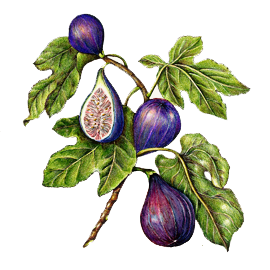I wish we had a recipe for a coronavirus serum. But there’s some immunity-boosting magic we can all do. Sprouting. Sprouting pulses (dried beans) ups their digestibility and nutritional profile. They’re living foods with all their natural goodness intact. Besides, sprouting gives you another option for all those dried beans you stockpiled.
Sprouting is cheap, easy, nourishing and fun geek out on while you’re sheltering in place. It’s entertaining and painlessly educational for kids stuck home from school, too, so get them in the game.

You need:
- A clean, large-wide-mouthed jar
- water
- cheesecloth
- a bowl
- a rubber band or some twine
- 1 cup dried beans
- time
Soak the beans in cold water to cover overnight, or for at least eight hours. This softens them and gives their germination process a boost.
Drain and rinse. Pour the softened beans into a tall, wide-mouthed jar, like a Mason jar. The beans will triple in volume, so make sure your jar has plenty of room to accommodate.
Cover the top of the jar with a double layer of cheesecloth and secure at the neck with a rubber band or twine. Invert the jar and set it inside a bowl, propping it up so it rests at an angle, allowing for air flow in and any remaining water to flow out. Bravo. You’ve done the hard part.

The next morning, fill jar with cool water, swish it so give the beans or grains a rinse, then drain it, setting the jar back in its off-kilter position. Keep doing it three times a day, until the beans sprout their adorable endosperm tails. You have achieved successful sproutdom when they have a delightful crispiness, like biting into a fresh radish, but are not at all tooth-crackingly hard. Most pulses sprout in two to three days, but it depends on the size and age of what you’re sprouting. My batch of lentils — cheap, basic supermarket lentils, took two days.

If the idea of doing more cooking and standing over the stove is shredding your last nerve, sprouts provide a nice light solution. Enjoy in sandwiches, salads and bowls. They’re also terrific to add to a quick sauté or stirfry.
Store extras in a clean container lined with a clean cloth or double layer of paper towels to blot away any excess moisture. This keeps your sprouts fresher longer for up to a week. Sprouts should be crisp, smell green and sweet, and retain a bright color. If your sprouts smell musty, start to brown, or go limp, compost them and sprout a new batch when you’re ready.
Does sprouting conjure your granny? Maybe she was just a wise woman. So channel your inner earth mother or earth father and give sprouting a chance. You’ve got the beans and time, after all.
Weird PS —You know I am a lover of beans and want you to enjoy them all every which way. However, raw, sprouted kidney beans, cannellini and favas can trigger a toxic reaction in a small percentage of the population. If you sprout them, cook them thoroughly to avoid any risk. We have enough health issues to worry about, and besides, I want you to have a positive pulse experience.
Check out the rest of our conscious cookery content:


Leave a Reply